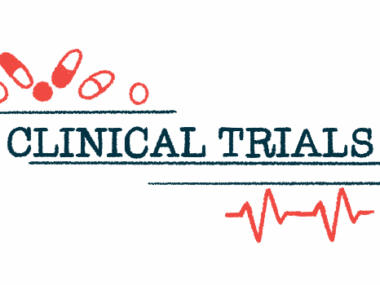Astria teams up with Ypsomed to develop autoinjector for STAR-0215
Experimental therapy for HAE is designed for under-the-skin administration
Written by |

Astria Therapeutics is teaming up with Ypsomed, a Swiss-based company, to develop an autoinjector for its experimental treatment STAR-0215 for hereditary angioedema (HAE).
“With STAR-0215’s profile, our goal is to develop a therapy that allows patients to choose an approach that works best for their lives with the option of infrequent three- and six-month administration,” John Ruesch, senior vice president of pharmaceutical sciences and technical operations at U.S.-based Astria, said in a company press release. “Our partnership with Ypsomed, a leading developer and manufacturer of injection systems, supports this goal through the planned development of an autoinjector that enables our vision for STAR-0215 to be a therapy that can effectively protect against HAE attacks while also having a very low burden of treatment and administration.”
HAE is caused by mutations that result in the excessive production of a signaling molecule called bradykinin, which in turn leads to the swelling attacks that characterize the disease. STAR-0215 is an antibody-based therapy that’s designed to lower bradykinin levels by blocking the activity of kallikrein, the enzyme that mediates bradykinin’s production.
The treatment candidate, also known as navenibart, is designed to be administered via a subcutaneous, or under-the-skin, injection. Assuming the therapy is approved by regulators, Astria is hoping to make it available in two forms: one a prefilled syringe, and the other with Ypsomed’s YpsoMate autoinjector.
Astria calls autoinjector use ‘a great choice’ for its HAE treatment candidate
According to Astria, the autoinjector “is a great choice for STAR-0215 due to its ease of use, needle shielding feature, and STAR-0215’s proprietary formulation that enables a quick injection with low risk of pain.”
Astria now is sponsoring a Phase 1b/2 clinical trial, called ALPHA-STAR (NCT05695248), to test various dosing schedules of STAR-0215 in adults with HAE types 1 or 2.
Participants in ALPHA-STAR were divided into three cohorts, or groups. Those in the first group received a single 450 mg injection of STAR-0215 and were then followed for six months. Those in the second group were given one 600 mg injection of STAR-0215, followed by a 300 mg injection three months later. Patients in the third group received two 600 mg injections one month apart.
Interim data announced by Astria earlier this year showed the rates of swelling attacks decreased by 90% or more following treatment with STAR-0215 at any of the three dosing regimens tested. No serious side effects related to the therapy were reported.
Participants who complete ALPHA-STAR have the option to continue receiving STAR-0215 treatment in an extension study called ALPHA-SOLAR (NCT06007677). In that study, STAR-0215 injections will given every three months at a dose of 300 mg, or every six months at a dose of 600 mg. Preliminary results are expected in mid-2025.
Astria also has announced plans to launch a Phase 3 trial to further evaluate the safety and efficacy of STAR-0215; that trial is expected to kick off early next year.
In the release, Astria describes YpsoMate as a “user-friendly two-step autoinjector” that has a safety mechanism “that protects against needle-stick injuries and ensures that patients do not see the needle.”
STAR-0215’s development has been put on a regulatory fast track in the U.S.





